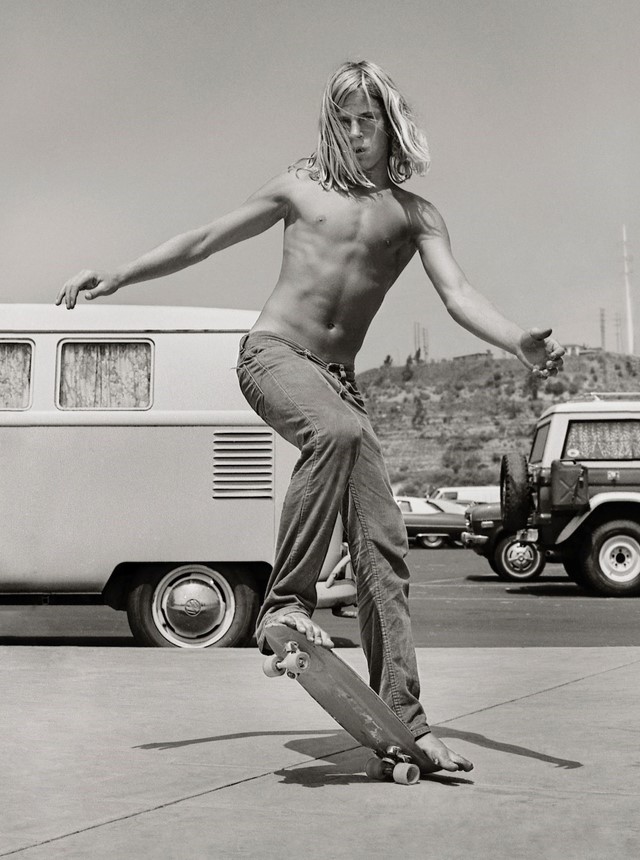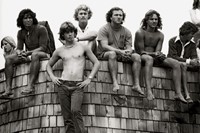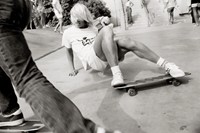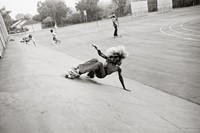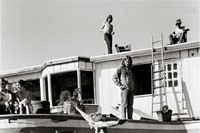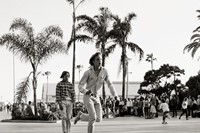Photographer Hugh Holland’s new book Silver. Skate. Seventies. is a never-before-scene portrait of California’s skateboard revolution
In the summer of 1975, Hugh Holland noticed something – teenage boys on skateboards were cropping up all across Los Angeles. Holland, then in his early thirties, was fascinated by these daring young men, who surfed drainage ditches on new-fangled urethane wheels which allowed them to transform a novelty toy into a tool that combined artistry and athleticism.
Holland took up photography just as the skaters were inventing a brand new sport on the streets of Los Angeles. As fate would have it, a drought hit the city in 1976 and all the backyard pools were drained, beckoning this small band of innovative outcasts to transform the barren landscape into a creative laboratory for their newfound pastime.
Over a period of three years, Holland amassed thousands of images of the emerging scene, documenting the skaters and the atmosphere, crafting a vivid portrait of rebellious youth living their best lives under the Southern Californian sun. Now, in the new exhibition Silver. Skate. Seventies., and accompanying book published by Chronicle Books, Holland presents never-before-seen black and white photographs from his archive. Here, he reflects on the importance of DIY culture, sport and art, and the rewards of doing something you love.
“I saw skaters everywhere on the streets during the summer of 1975, but the first time I saw [them] going vertical, I was driving through Laurel Canyon past a drainage ditch they called the ‘Mini Bowl’. Out of the corner of my eye, I noticed them bobbing up past street level, going up and coming down, over and over again. They were conquering new frontiers. I stopped, parked my car, and went in. They welcomed me because I had a camera and a car!
“Word around got around so fast with those guys. They knew when there was a new place, a new empty pool in someone’s backyard way on the other side of town. I was lucky to be there at the right time and the right place and ride that wave of freshness. 1975 was all about breaking new boundaries and seeing who could be the most stylish.
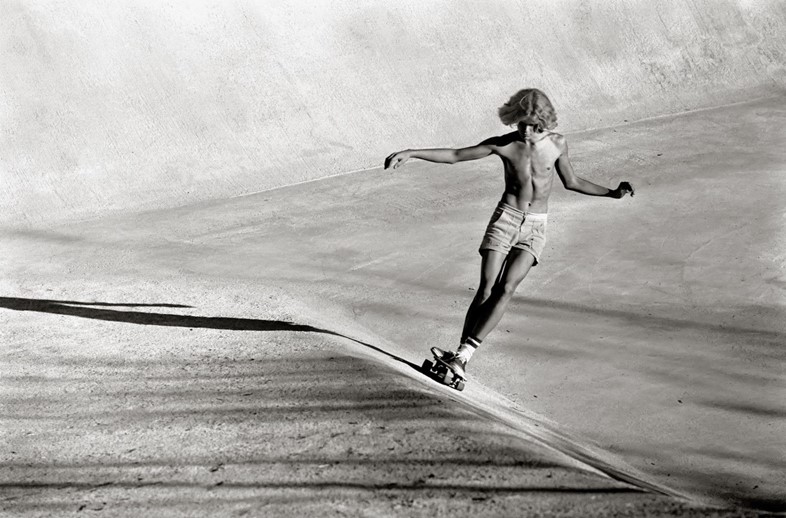
“It was like ballet on concrete. You had to balance on the board, make turns and kick flips, and get up to a high point. The style comes from surfing. Even in Hollywood, where I lived, there were a lot of surfers around. Right across the Hills, in the Valley, the kids all hitchhiked to the beach. That’s a long way to go, so naturally skateboarding became a big deal because it took the place of surfing.
“They would almost fight with each other to get their picture taken. ‘Hey camera man, get this!’ To me that was great, I was interested in capturing everything I could. I had started doing photography a couple of years earlier, so I was learning my art and they were learning theirs at the same time. I was working during the day so most of my pictures were done at sunset. I had been using colour film to make photographs I thought could be published in a magazine.
“The black and white photographs were more spontaneous because I was just shooting without worrying too much. I was learning to do composition on the move with this split second action and I got a lot of happy accidents; I didn’t know I was doing so well at the time and now I see the fruits of my labour 45 years later.”
Silver. Skate. Seventies is on view at M+B Gallery, Los Angeles until November 9, 2019. The book of the same name is published by Chronicle Books.
